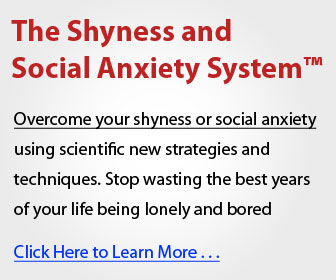In today’s fast-paced world, stress and anxiety have become an inevitable part of life. Whether it’s work pressure, personal relationships, financial worries, or the constant bombardment of information, it’s easy to feel overwhelmed. These feelings can impact not only your mental health but also your physical well-being. However, it’s important to remember that there are effective coping mechanisms for stress and anxiety that can help you stay resilient, regain control, and maintain a balanced life.
In this article, we will explore the various coping mechanisms for stress and anxiety, how they work, and how you can implement them to reduce stress levels and improve your overall quality of life. By understanding the root causes of stress and anxiety, and learning practical ways to cope, you can build mental resilience and navigate challenging times with greater ease.
What are Stress and Anxiety?
Before diving into specific coping mechanisms for stress and anxiety, it’s important to understand what stress and anxiety are and how they affect your body and mind.
- Stress is your body’s reaction to demands or threats, whether real or perceived. It can be short-term (acute) or long-term (chronic), and it affects both your mind and body. While a small amount of stress can be motivating, chronic stress can lead to a range of health problems, such as insomnia, digestive issues, high blood pressure, and weakened immune function.
- Anxiety is the feeling of worry, nervousness, or unease about something with an uncertain outcome. While anxiety is a natural response to stress, it can become problematic when it’s excessive and persistent. Anxiety can manifest physically as well as emotionally, causing symptoms like rapid heartbeat, shallow breathing, dizziness, and difficulty concentrating.
The Importance of Coping Mechanisms for Stress and Anxiety
Developing effective coping mechanisms for stress and anxiety is essential for maintaining emotional and physical health. If left unmanaged, stress and anxiety can lead to burnout, depression, and a range of other mental health disorders. On the other hand, healthy coping mechanisms can help you reduce the intensity of stress, regain your sense of calm, and restore balance to your life.
By practicing these coping mechanisms regularly, you can:
- Strengthen your ability to handle life’s challenges.
- Increase emotional regulation and reduce negative thinking patterns.
- Improve your physical health by lowering stress-related symptoms.
- Boost self-esteem and improve overall life satisfaction.
Now, let’s dive into some practical and effective coping mechanisms for stress and anxiety that you can incorporate into your daily routine.
1. Mindfulness and Meditation
One of the most popular and effective coping mechanisms for stress and anxiety is mindfulness. Mindfulness involves paying attention to the present moment without judgment. It encourages you to observe your thoughts, feelings, and sensations as they arise, allowing you to stay grounded and reduce overthinking.
How to practice mindfulness:
- Focus on your breathing. Take slow, deep breaths and pay attention to how the air feels as it enters and exits your body.
- Observe your thoughts without engaging with them. Acknowledge them, but let them pass without judgment or attachment.
- Practice mindfulness in daily activities, such as eating, walking, or even washing dishes. Focus on the sensations and details of the task at hand.
Meditation is another great tool that promotes mindfulness. It allows you to calm your mind, reduce anxiety, and manage stress more effectively. Even just a few minutes of guided meditation each day can have a significant impact on reducing stress levels.
2. Physical Exercise
Exercise is a powerful tool when it comes to coping mechanisms for stress and anxiety. Physical activity stimulates the production of endorphins—natural chemicals in the brain that help improve mood and reduce pain. Exercise also reduces the production of stress hormones like cortisol, allowing you to feel more relaxed and at ease.
How to use exercise as a coping mechanism:
- Engage in activities like walking, jogging, swimming, or cycling to get your body moving and release tension.
- Incorporate yoga or stretching exercises, which can promote both physical relaxation and mental clarity.
- Aim for at least 30 minutes of moderate exercise, 3 to 5 times per week, to experience the full benefits.
Regular physical activity not only reduces stress but also enhances your overall well-being, helping you build mental and physical resilience.
3. Deep Breathing Techniques
Another simple yet effective coping mechanism for stress and anxiety is deep breathing. When you’re stressed or anxious, your breathing often becomes shallow and rapid. Deep breathing helps calm the nervous system and signals to your body that it’s time to relax. This technique can be done anytime, anywhere, to reduce the intensity of stress or anxiety.
How to practice deep breathing:
- Find a quiet space where you can sit comfortably.
- Close your eyes and take a deep breath in through your nose for a count of four.
- Hold your breath for a count of four.
- Slowly exhale through your mouth for a count of four.
- Repeat this process for a few minutes, focusing on the sensation of your breath entering and leaving your body.
Deep breathing exercises can be particularly helpful during moments of acute stress or anxiety, allowing you to regain control and calm your mind.
4. Journaling and Expressive Writing
Writing down your thoughts and feelings is another powerful coping mechanism for stress and anxiety. Journaling allows you to express emotions that might be difficult to verbalize, helping you release pent-up feelings and gain clarity on your situation.
How to start journaling:
- Set aside time each day to write about your experiences, emotions, or any stressful events that have occurred.
- Use journaling prompts to explore your feelings more deeply, such as “What is causing me stress today?” or “What are the things I can control in this situation?”
- Write about positive experiences or things you’re grateful for to shift your focus away from stress and anxiety.
Expressive writing can help you process difficult emotions, gain insights into your stress triggers, and find ways to cope more effectively.
5. Social Support and Connection
Sometimes, the best way to cope with stress and anxiety is through social support. Reaching out to friends, family members, or a support group can provide you with emotional comfort, reassurance, and perspective. Talking about your stress and anxiety can make it feel less overwhelming, and the support you receive from others can help you regain strength.
How to connect with others for support:
- Reach out to a trusted friend or family member to talk about what you’re going through.
- Join a support group where you can share experiences and coping strategies with others facing similar challenges.
- Practice active listening when others express their feelings. This creates a sense of community and understanding, which can alleviate feelings of isolation.
Social support is one of the most effective coping mechanisms for stress and anxiety, as it fosters a sense of belonging and reduces emotional burdens.
6. Engage in Hobbies or Creative Activities
Engaging in hobbies or creative activities can provide a much-needed distraction from stress and anxiety. Whether it’s painting, gardening, knitting, or cooking, these activities allow you to focus on something positive and enjoyable, which can help take your mind off stressors.
How to incorporate hobbies into your routine:
- Dedicate time each week to engage in a hobby you enjoy, whether it’s reading, playing an instrument, or crafting.
- Use your creative activities as a form of mindfulness, focusing on the process rather than the outcome.
- Explore new hobbies that you find exciting or relaxing to help break the cycle of stress.
Stress and anxiety are common challenges that everyone faces at some point in life. However, by utilizing effective coping mechanisms for stress and anxiety, you can manage these emotions and develop greater resilience. Whether it’s practicing mindfulness, exercising regularly, breathing deeply, journaling, seeking social support, or engaging in hobbies, these strategies can help you regain control, reduce stress, and improve your overall mental and physical well-being.
Remember, coping with stress and anxiety is not about eliminating these feelings entirely but learning how to respond to them in healthy, productive ways. With the right tools and mindset, you can stay resilient in tough times and move forward with a sense of balance and inner peace.


